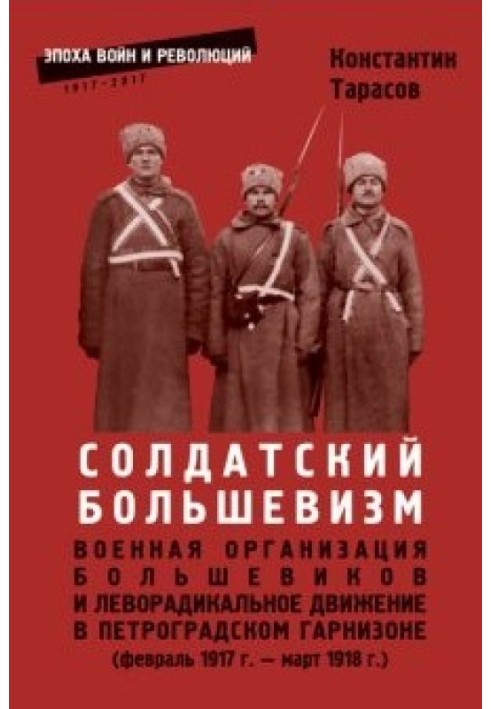Soldier's Bolshevism. Military organization of the Bolsheviks and the radical left movement in the Petrograd garrison (February
 Instant download
Instant download
after payment (24/7)
 Wide range of formats
Wide range of formats
(for all gadgets)
 Full book
Full book
(including for Apple and Android)
The book analyzes one of the most important phenomena of the Revolution of 1917 - massive support for the Bolshevik party by the soldiers of the capital's garrison. The author examines how the dialogue between them was built, how they managed to reach mutual understanding, and also how exactly the Bolsheviks, finding themselves on the crest of a revolutionary wave, were able to come to power and strengthen their influence in Petrograd. Reconstruction of political conflicts at the level of soldiers' barracks allows us to study this large-scale phenomenon in more detail and reconsider the role of parties in the revolutionary process. Particular attention in the study is paid to the activities of the Bolshevik Military Organization - a party structure that was least studied during the Soviet period, which is why its role in the revolution was overgrown with myths. Why was it created? How did a group of a few dozen people become one of the most influential political forces in 1917? What was its role in the armed riots of July 3–5 and the October Revolution? Why at a certain moment was the decision made to liquidate it? The book is addressed to historians, as well as to all those who are interested in the history of Russia.
Data sheet
- Name of the Author
- Константин Тарасов Андреевич
- Language
- Russian
Reviews
Глибоке дослідження революційних процесів
Книга "Солдатський більшовизм" є вражаючим дослідженням одного з найважливіших аспектів Революції 1917 року — підтримки більшовиків військовими. Автор майстерно аналізує, як відбувався діалог між солдатами Петроградського гарнізону та партією, розкриваючи механізми взаєморозуміння, які дозволили більшовикам зміцнити свій вплив. Особливо вражає реконструкція політичних конфліктів на рівні солдатських казарм, що надає читачеві можливість глибше зрозуміти соціальні та політичні процеси того часу. Автор також детально розглядає діяльність Військової організації більшовиків, яка, на жаль, була недостатньо вивчена в радянський період. Це дослідження не лише спростовує міфи, але й відкриває нові перспективи для розуміння ролі партій у революційному процесі. Книга стане цінним ресурсом для істориків та всіх, хто цікавиться історією Росії, адже вона пропонує нові погляди на події, які змінили хід історії. Рекомендую всім, хто бажає глибше зануритися в цю важливу епоху!










